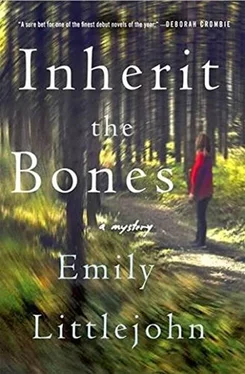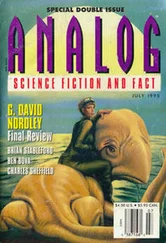There was Joseph Fatone, Fellini’s general manager. He seemed harmless enough, but there was something off about him, his answers had come too easy during our conversation. There was more to the man than met the eye. Reed’s girlfriend, Tessa, was feisty, driven, and beautiful… and complicated. Was it compassionate to live with someone you didn’t love-Lisey-who was in love with you? Or was it a cruel power play, an illusion like the ones Tessa created as she flew through the air on the trapeze bars?
At the circus, surrounding Reed, and Joe, and Tessa and Lisey, were the dozens of supporting characters I’d yet to meet: the glitter and the gassers, and the grunts and peddies. They were a motley crew of nomads, making their way from city to city, anonymous, living under the shadows of the big top and the bright lights.
Not for the first time, I thought what a perfect cesspool a traveling circus could be. I’m sure there were good people in there, honest, decent hard workers, but the very nature of the beast dictated that the players were those who liked living on the fringe of society.
And there was Nicholas, sweet, good-natured Nicky. His father was a decent and ambitious man with aspirations for Washington. His mother, Ellen-beautiful and as cold as an arctic queen in a fairy tale. And like any good fairy tale, there was a princess. Only this princess was as smart as her father and as beautiful as her mother and as sweet as her twin brother.
In real life, perfection like that doesn’t exist, and when you see it, you know there’s something else behind the facade.
Finally, there was Nicky himself. What was he doing three years ago, spending all his free time looking into a thirty-year-old murder mystery? And what, if anything, did that have to do with his death two days ago?
Like actors on a stage, the major players in the case paraded back and forth across my mind, each playing their roles. At my feet, Seamus snored, twitching every few minutes from his doggy dreamland. He shifted and I shifted with him, his body and my legs repositioning themselves until we were both comfortable again.
I must have fallen asleep around midnight, but the Woodsman again haunted my dreams.
I stand in a meadow in the middle of a dense forest. The air is cool and silent and still. I’m in a nightgown, an old-fashioned dress with long sleeves and delicate lace trim at the wrists and hem. When I raise my arms to look at what I’m wearing, the white fabric glows in the moonlight. The lacework is so fragile it looks as though I’ve dipped my wrists in cobwebs.
I’m a beacon in the dark woods.
The children creep toward me, emerging from the black forest like wraiths.
They fall to their knees around me, their hands together in supplication as though to pray. We are the dead, they whisper. Do not forget us, they chant. Tommy is closest and I put my hand on his head in a gesture of comfort, but my hand passes through his face and I stumble, losing my balance.
A noise emerges from the woods, a terrible dragging sound, and as the children slip back into the dark edges of the trees, a man emerges. He never steps into the moonlight but I can tell he is large, over six feet tall, and strong. He has the shoulders of a man who spends hours using them, and strapped to his back are the woodsman’s tools: pick-ax, shovel, handsaw, hammers.
Behind him is a sleigh, or a wagon, on which a wrapped object lies. The object is not long, maybe four feet, but something deep within me recognizes its general shape and my stomach clenches in a tight fist of fear.
He stops and for the first time in all my dreams, he looks around the meadow as though he senses my presence.
For a moment, I think he doesn’t see me. I exhale and step backward but my bare feet hit a twig and in the still of the forest, the noise is a crack of thunder. I freeze and the Woodsman’s head slowly turns toward me.
My blood turns to ice in my veins.
My bowels loosen and I tighten my thighs to staunch the flow of urine that I’m about to release. Fear like I’ve never felt before runs through every nerve, every cell in my body, and I sense a scream building in my throat.
“It’s too late,” he whispers. “You’re already dead.”
* * *
At six o’clock the angry buzz of the alarm clock jolted me awake. I sat up. The room was cold and quiet; Seamus must have gone downstairs for a sip of water or to commandeer a patch of early morning sunlight on the living-room floor. As I rolled out of bed, my bare leg brushed against a damp spot in the middle of the mattress. Puzzled, I leaned over it and the sharp smell of urine hit me.
I’d wet the bed.
I threw the sheets in the washing machine and left a voice message with Dr. Pabst’s office. He was helpful when I saw him before; perhaps he’d have some new insight into my dreams. I reached a secretary who was delighted to tell me that there had been a cancellation and Pabst could see me that morning.
I tried to ignore the shame that crept over my body when I thought about the wet spot in my bed. Fear is a natural human emotion. My bladder was just full; it was the Peanut’s fault. Maybe I had a UTI.
I told myself these things but I knew who had caused the bed-wetting.
It was the Woodsman.
I showered and made breakfast and let Seamus out into the backyard. In the morning light, from my perch on the patio, I couldn’t see anything out of the ordinary. I thought about crossing the yard and checking the far side of the fence, but my feet were bare and the grass was wet with dew. Seamus did his business and then came right back in, with none of the whining he’d done the night before.
Before I left for the day, I checked my personal e-mail and immediately wished I hadn’t. There was only one message, from Brody, laced with expletives and apologies. The team had run into a snag in Denali; some of their core samplings had degraded and were useless. They would need to re-create most of their research, from the beginning. It didn’t make sense to return to the mainland, and then go back, so they were staying, possibly as long as another three weeks.
Brody wasn’t coming home anytime soon. Celeste Takashima’s perfect face, with her dark almond-shaped eyes and thick black hair, flashed in my mind. Their affair had been brief and intense and was long over. At least that’s what Brody had told me. But he’d also told me that part of his contract included a clause by which he had the ability to vet his team, and avoid ever having to work with the woman again.
Some clause.
“Stay cool, Gemma,” I whispered to myself. “You don’t know that she’s up there.”
I told myself that but I didn’t believe it.
Dr. Dean Pabst hid a keen intellect and a wicked sense of humor behind an extra two hundred pounds and a bad toupee. Despite the old saying, the world does judge books by their covers, and as his weight increased over the years, Pabst lost a number of clients, clients who felt that a man who couldn’t control his own size certainly couldn’t speak to their issues of self-control and life skills.
Pabst was good, though, and I trusted him. He was a keeper of secrets, of dark feelings and tangled thoughts that, in the sanctity of his office, tumbled from my mind and freed up space for the good things. It was strange to admit, but Pabst knew me better than anyone else on this planet.
The doctor settled into the easy chair behind his desk and I took my customary seat in the armchair that faced him. I hadn’t been to his office in a few years and I was pleased to see not much had changed. The spider plants in the windowsill looked healthy; the books on the shelves that lined the wall remained dust-free and orderly. The blue carpet was worn and the temperature was pleasant. It was a neutral space conducive to confession and healing.
Читать дальше

![Лаура Бренз - Потомственная ведьма[Inherit the Witch]](/books/79609/laura-brenz-potomstvennaya-vedma-inherit-the-witch-thumb.webp)










